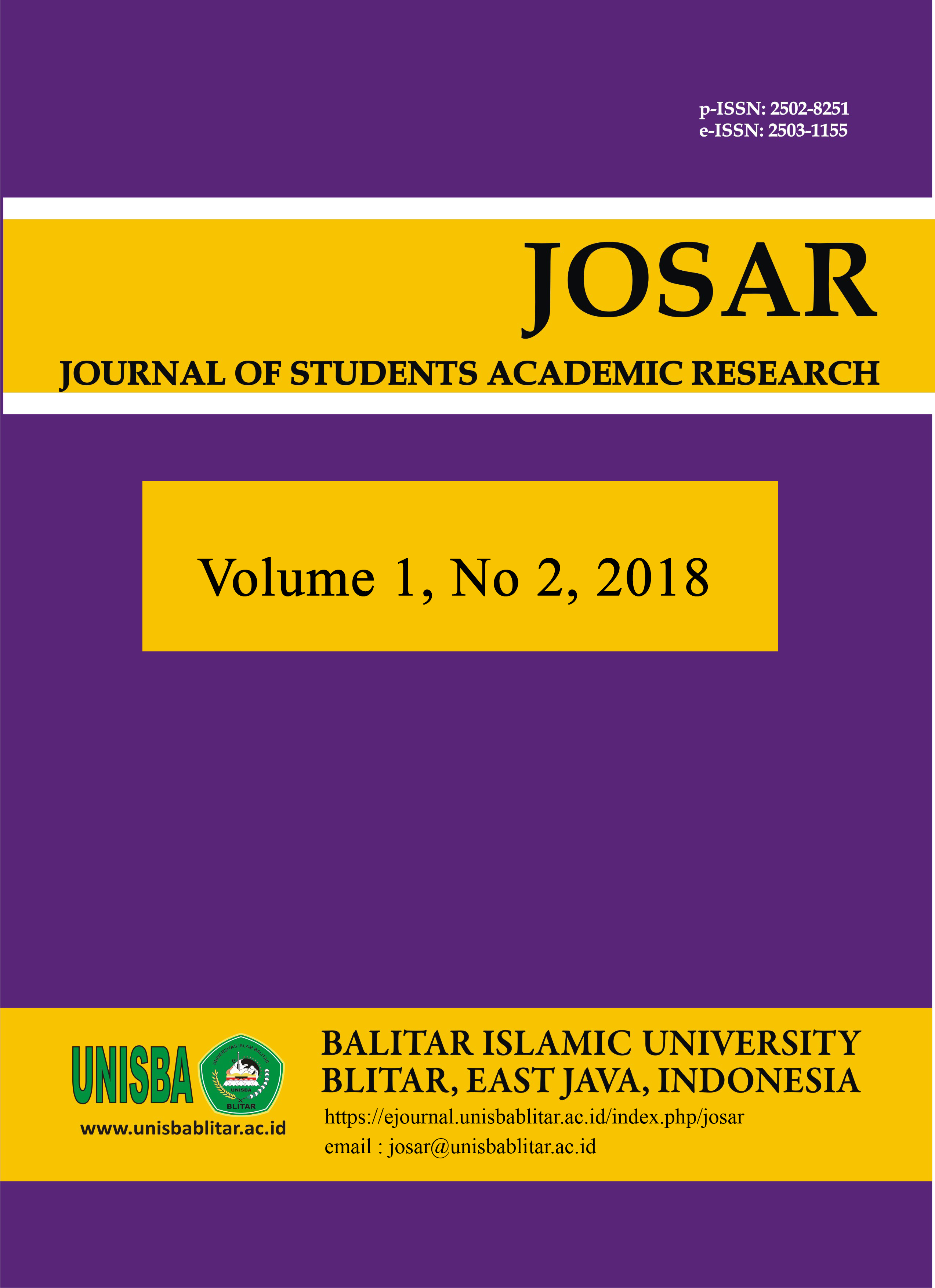ANALYSIS OF FINANCIAL AGROINDUSTRY JIPANG
(Case Study of UMKM Sinar Abadi in Jeblog Village, Talun, Blitar)
DOI:
https://doi.org/10.35457/josar.v1i02.611Keywords:
Jipang Agroindustry, Total Cost, Revenue and Profit, R / C ratio, Net Present Value(NPV), Break Event Point (BEP), Pay Back Period (PP)Abstract
A business feasibility analysis is needed to see a picture of feasible or tudak, In running japan business agroindustry, most entrepreneurs have not done a special financial recording for his business, so it is not known how much it will cost and income on his business. This study aims to determine the amount of expenses, income received and profits, knowing business feasibility and knowing the length of capital jipang agro industry in UMKM Sinar Abadi can be back in units of time year. Method analysis used in business feasibility analysis include R / C Ratio, Net Present Value (NPV), Break Event Point (BEP), and Pay Back Period (PP). This study was carried out from months June 2017 to July 2017. The results of the calculations from this study indicate that the total cost for one time jipang production reached Rp34.950.463, - per month, the average gain gained Rp133.554.450, -, while the calculation of R / C ratio of agro industry jipang Sinar Abadi shows the number> 1, which is 1.32. Jipang Agroindustry is declared worthy with value NPV Rp 979.900.978. Break Event Point Value (BEP), BEP receipt obtained value of Rp 474,425, BEP units obtained value of 12 Kg and BEP price obtained value of Rp 30,629, meaning do not experience any profit or loss before the age of the equipment ends. While Pay Back Period (PP) of 0.1 years, so it can be concluded that jipang agro industry Sinar Abadi is worth developing.

Downloads
Published
Issue
Section
License
Authors who publish in this journal agree to the following terms:
- Authors retain copyright and grant the journal right of first publication with the work simultaneously licensed under a Creative Commons Attribution License that allows others to share the work with an acknowledgment of the work's authorship and initial publication in this journal.
- Authors are able to enter into separate, additional contractual arrangements for the non-exclusive distribution of the journal's published version of the work (e.g., post it to an institutional repository or publish it in a book), with an acknowledgment of its initial publication in this journal.
- Authors are permitted and encouraged to post their work online (e.g., in institutional repositories or on their website) prior to and during the submission process, as it can lead to productive exchanges, as well as earlier and greater citation of published work (See The Effect of Open Access).
Deprecated: json_decode(): Passing null to parameter #1 ($json) of type string is deprecated in /home/ejournal.unisbablitar.ac.id/public_html/plugins/generic/citations/CitationsPlugin.php on line 68









